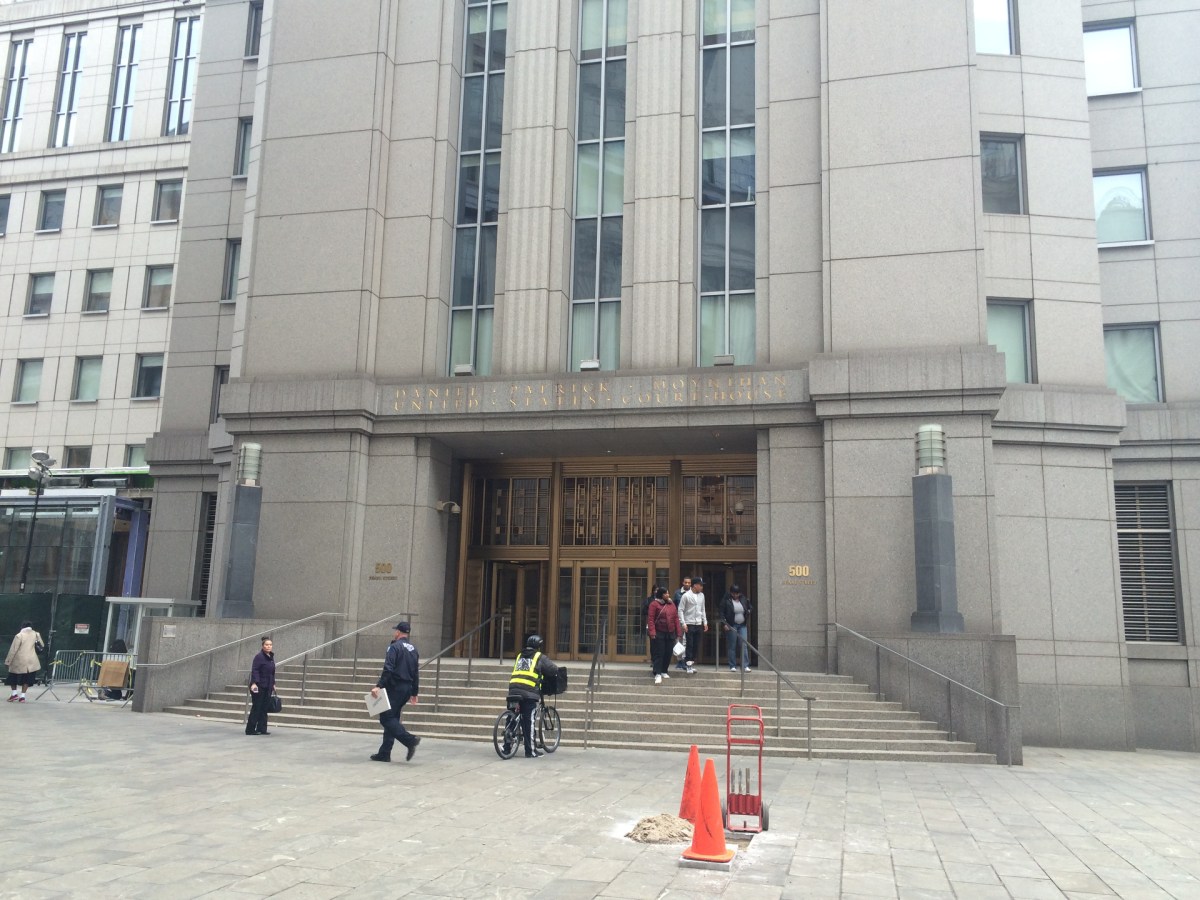New York State Sen. Dean Skelos (R-Rockville Centre) laughed when asked if campaign finance reform might pass the state legislature, a billionaire developer’s lawyer testified at the senator’s corruption trial.
The anecdote was just one of many heard at the trial that showed the way ethics reforms are treated behind the scenes in corruption-prone Albany. In another, the former chair of the state Senate ethics committee, Tony Avella, recalled on the stand that in his role he found it impossible to make real change.
But the real estate industry was most concerned that the state might pass legislation to close the so-called LLC loophole, which allows businesses to skirt campaign donation limits by issuing checks from various limited liability corporations to disguise their source.
“That’s how we get our voice out,” said Charles Durego, general counsel and Senior Vice President at New Hyde Park-based developer Glenwood Management Corp., the biggest political donor statewide, last week during Skelos’ trial at Manhattan federal court.
Glenwood, owned by billionaire Leonard Litwin, is one of three companies that Skelos, the former state Senate Majority Leader, allegedly coerced to get $300,000 in bribes. They took the form of no-show jobs that his son, Adam, was unqualified for in exchange for illegally manipulating legislation. Both men deny the accusations.
Durego said he asked Skelos the LLC loophole question on behalf of the Real Estate Board of New York, a group representing landlords and developers, which was also concerned about the possibility it would pass.
In general, Democrats favor closing the LLC loophole because Republicans mostly benefit from those donations, prosecutors noted, adding that the GOP would rather make illegal other types of donations that Democrats mostly receive. As a result, the reform effort ends in a legislative stalemate.
State Sen. Tony Avella (D-Queens), one of the witnesses to testify at the Skelos trial, said that when he joined the Independent Democratic Conference (IDC), a small group of senate Democrats who caucused with the Republicans in a power-sharing agreement, he was named chair of the Senate ethics committee. First elected in 2011, Avella said that as chair of that committee he quickly learned that talk of ethical reforms in Albany did not see any follow through.
“No bills had ever been referred to that committee, and no bills ever came out of [that] committee,” he said on the stand. When Avella decided to hold a hearing on the issue instead, he was told it had to be postponed.
Even now, with both Skelos and his former counterpart, ex-Speaker of the Assembly Sheldon Silver (D-Manhattan), on trial for similar but unrelated corruption charges in the same courthouse at the same time, state lawmakers remain reluctant to pass any additional proposed reforms, such as enacting term limits or stripping convicted lawmakers of their pensions, beyond making a few changes to disclosing outside income which passed earlier this year.
Last week, Assembly Speaker Carl Heastie (D-Bronx), Silver’s replacement, told reporters that further reforms are unlikely, according to Capital New York.
Skelos’ replacement as state Senate Majority Leader, Sen. John Flanagan (R-Northport), reportedly shares Heastie’s view.
One reason why the sentiment prevails may be found in phone calls between the senator and his son that the FBI recorded. In one exchange played in court, Adam criticized his father for working with the Democrats in the IDC, but Dean reminded his son to take the long view.
“I have to think about the next election,” the senator reminded him.
In between the push-pull of prosecutors and defense lawyers making their cases, the corruption trail of New York State Sen. Dean Skelos (R-Rockville Centre) details how much money and politics remain intertwined.




























